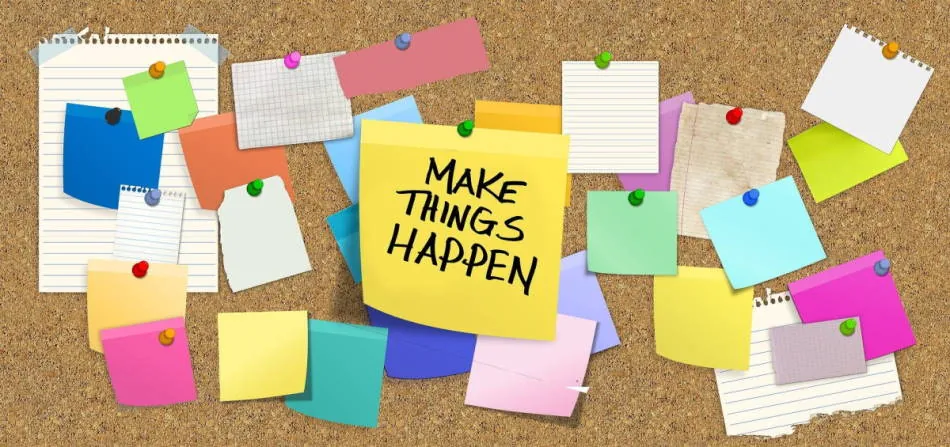9 tips to Learn French faster
Learn French faster and go faster to B2 level
Tips are followed by mini tips to help with practice
1/ Keep alive your learning process and do not stop even if you go abroad

Learning a new language takes time, and this time is for integrating the language (not for memorizing vocabulary, grammar, …). It is not the same process as studying science for example.
If you are a beginner (or an active learner at higher level), don’t stop 2 months because you will lose very quickly your knowledge and you will have to redo a big part of the work.
Work for the long term and, if you go on a trip for 2 months, adapt the way you work but keep alive your learning process.
2/ Learn 30-40 minutes a day rather than working hard 2 days a week

Better to learn every day 30-40 minutes a day than to work hard 2 days a week
Adapt your organization according to your situation
If possible, be a student with daily routines rather than being a twice-weekly workaholic
3/ « Dive in », connect French to your life, and speak out loud as soon as possible

The ultimate goal is speaking, so do it at your level as soon as possible
Get into real-life situations and start producing and prioritizing Speaking
Find below mini-tips explaining how to connect French to your life
4/ Do not worry about being out of your comfort zone and making mistakes

It’s like learning to ride a bike : some stress at the beginning …
Being out of the comfort zone and making mistakes is part of everyone’s learning process.
Plus, people remember the attitude, not the mistakes.
5/ Start with short sentences and a robust grammar with limited vocabulary

Memorize useful vocabulary in short expressions and don’t spend energy memorizing a lot of unnecessary vocabulary.
Build short sentences but full sentences even if one word would be enough for a French native speaker.
Use a robust grammar and play with it, using examples of daily life in short sentences
Goal is to speak, to gain confidence, to be in control, and to get your autonomy.
Next step would be to improve vocabulary, expressions, and grammar.
6/ Use pronunciation, rhythmic groups, intonation, and tonal-emphatic-expressive stress

Good communication doesn’t rely on perfect pronunciation, but on the correct use of a combination of pronunciation, rhythmic groups, intonation and tonal-emphatic-expressive stress to enrich your message and help your interlocutor decode it easily and accurately.
Having a slight accent does not matter if it does not alter the message.
![]() Start by understanding the purpose of rhythmic groups, intonation and accentuation, and give them a reason for being
Start by understanding the purpose of rhythmic groups, intonation and accentuation, and give them a reason for being ![]()
so that you feel comfortable using them and take control of your communication. A good way to think about it is also to make a comparison or ask yourself how it works in your mother tongue.
See HERE Rhythmic groups, intonation, tonic stress, …
7/ Listen, read and imitate aloud

Today, there are many audio books with dialogues and transcriptions.
Use these audio books to analyze the language, train your ear, and mimic the pronunciation and intonation.
According to your level, use audios and videos such as : Audios in books for French-learning, TV, Podcasts, Videos, Songs, Karaoke, Movies, TV series, … The key is to get the right transcription
Again : Speak, Speak, and Speak ! … out loud !
8/ Use apps

They are 3 kinds of apps :
1 _ To learn French : For beginners to low-intermediate students, an app can be a good helper to learn vocabulary and phrases anytime, anywhere, but human interactions are the key to build your skills and confidence. So, even if you use an app, start as soon as possible human interactions.
Some apps for Learning : Rocket French, Rosetta Stone, Pimsleur French, Duolingo, Memrise, Busuu, HelloTalk, Babbel, Beelinguapp , … (See reviews online before choosing)
2 _ To prepare for exam : It is an E-learning training dedicated to prepare for an exam. It focus on the exam with tests and often with mock-up exams and follow-up. A good example is the TEF / TEFAQ exam preparation from PrepMyFuture . Students like it. Big advantages is : you can work hours, anytime, anywhere, cost / quality ratio is very attractive, and teacher can follow students’ progression and help them when difficulties.
3 _ To do Language exchange : In theory, it is an app to speak with native speakers but the reality is often writing practice than talking because apps are based on messenger services.
Some apps for Language exchange : Tandem, Hello Talk, Speaky, Bilingua, …(See reviews online before choosing)
So take into consideration your goals and how you work to find the application that corresponds to your needs.
9/ Do activities and Hobbies in French


While learning French, do activities or hobbies in French and make new French speaking friends!
_ If you like knitting, dancing, photography, sport, … do it in French
_ Another possibility is to volunteer in an association (Ecology, Community, IT support, …) where you can socialize.
_ Maybe you can work in a bilingual environment …
_ May be, you can socialize with a neighbor …
If you are a pretty busy person and you don’t have time, see if it is possible to do one of your activities in a French environment and there is always possibilities which include :
_ Watching films
_ Listening to the radio
_ …
The ultimate goal is to create a French environment you will keep naturally later as part of your life (Through this activity or/and through new French speaking friends).
So be strategic, to keep your French naturally alive over time.
Mini-tips

Find below some mini-tips, or a repetition of tips with more details
Mini-tips are about :
-
-
- Work on …
- Prioritize
- Follow-up
- Tools
- Speaking
- To consolidate
- More about Pronunciation and intonation
- In difficulty
- Plan your exam
- …
-
Work on …

The 4 Skills
Work on the four skills Speaking, Listening, Reading, and Writing because they are interconnected.
Reading, compared to Listening, allows more time to examine vocabulary, sentence structure, and to better understand audio books (e.g. « liaisons »).
Writing, compared with speaking, also allows us to spend more time examining vocabulary and sentence structure, and then to better understand books and people.

Review
If you work 40 minutes, try to devote 70% to new lessons and 30% for revision.

Dive in …. use Flash-Cards but don’t get overwhelmed
Having flash-cards helps you to review quickly and easily. The goal is mainly to have vocabulary and expressions « Ready to use » when speaking.<br>
Use them in context (K.I.S.S. with short and useful sentences)<br>
My advice : Create flash-cards according to your needs and interests to avoid becoming overwhelmed

Dive in … Routines
Dive in … routines !
Examples of routines : working 40 minutes at home a few times a week, using your commute time for learning, eating with a French-speaking friend once a week, …
Another good way to set up a routine could be, participating in a French discussion group once or twice a week (French meetups, private groups, …) or participating in an activity with native French speakers.
Prioritize

Prioritize Speaking
Speaking is always the first goal.
When starting to speak with friends : Focus on the vocabulary you need for everyday life, such as transportation, feelings, money, restaurant, cinema, expressions of politeness …
If you work as a waiter in a restaurant (English and some French customers): For two weeks focus on greetings, menus, drinks, meals, ordering, bills, …
Seek out opportunities to practice in real life and focus on your needs
Follow-up

Have goals and measure your progress : Take Micro-Steps
Create micro-steps to have targets and to measure your work
Tools

A small notebook and a dictionnary… as friends
Always have a pen and a small notebook dedicated to French to take notes quickly
Another good friend could be the dictionary app you already have on your phone.

Language exchange apps : A quick note for my students
Rear reviews, ask your friends and take your pick
Speaking

Speaking … for beginners
SPEAKING is communication in everyday life ! (which includes LISTENING)
So, mastering vocabulary, grammar, reading and writing without being able to speak does not lead to success.
If you are a beginner, start speaking as soon as possible, at home, alone, speaking to yourself, simulating real conversations aloud. Then, take every opportunity to speak in real life.
Again : Speak, Speak, and Speak!
This is the Big, Big, Big Key !

Speak at home, use Post-it
At home and at any level, use post-its and labelled your environment.
Practice at your level, make small useful sentences related to your life and speak aloud.
Work on a ‘family’ of words, on a topic.
Example 1 for beginners :
« le riz, du riz, …(noun gender !)/ Je veux du riz/ je veux un peu de riz », … affirmation, negation and questions.
Example 2, at another level :
« Conditionnel » and « Subjonctif » : « Il faudrait que j’aille acheter du riz.
Simple, easy to setup, useful, not boring, just vocabulary, a bit of grammar, and short sentences about life.

Start it K.I.S.S. to be in control
Keep it short and simple (KISS), build small sentences for everyday conversations.
On a new topic, at your level, first choose short sentences, speak out loud, work on pronunciation and intonation.
In a short sentence, it is easier to make fewer mistakes, to get the right grammar and vocabulary, and to use a good intonation.
In addition, if a mistake is made in a KISS sentence, you will probably « hear » the mistake without any effort.
So, be K.I.S.S. !

Beginners and not beginners : Use Audios and videos to speak at home
Use audios books with dialogues and texts you like, analyze dialogues, train your ear, and mimic, copy pronunciation and intonation.
You can find audios in books for French-learning, TV, Podcasts, Videos, Songs, Karaoke, Movies, TV series, …
If you like a dialogue, a movie, … participate to the conversation and don’t hesitate to redo it later to be comfortable, to copy intonation and pronunciation.
Start by dialogues with « short » sentences
Again : Speak and work on intonation

Speak …. while reading new texts_
Try to read regularly and at your level Read about your hobbies, read magazines, books, ads, newspapers, brochures, online discussion forum, … and write down the vocabulary and expressions.
A good exercise to correct pronunciation and « liaisons », … is to read aloud with a native French speaker. It is also possible to find books for different levels in French and in English (Left page in French, right page in English) .
Always keep your goals in mind and focus on your needs

Beginners : Practice speaking in real situations
Take advantage of every opportunity to practice … including the little things in life such as :
_ Order a tea or a « Soy latte » (A big challenge at busy hours)
_ Greet your neighbor
_ Say hello or more to your colleagues
_ Propose eating together, going to the cinema
_ Ask for price, information, …
_ …
Train yourself at home and speak out loud
To consolidate

Consolidate with Writing
Writing is a Winner. It solidifies your French and helps you to memorize.
When writing, you have time to think about the grammar, to remember vocabulary, to find the right way to express your ideas.
Start as soon as possible :
_ Write a professional text or a short note
_ Write an email to a friend
_ Write on an online discussion forum
_ Summarize an article
_ …
If necessary, ask a francophone for help
More about Pronunciation and intonation

Improve your Pronunciation
Yes , Pronunciation is important but don’t work like crazy to be perfect.
Improving your pronunciation requires the ability to distinguish French sounds, to know how to place your mouth, to know « les liaisons « , « e et h muets », …
Work on these as soon as possible to have correct pronunciation.
This is necessary to produce a good message and it is also a good way to improve Listening.

Enrich … with Intonation
Good communication is not based on a perfect pronunciation but on the proper use of intonation.
Having a slight accent does not matter if it does not alter the message. Intonation is the Key.
Think about these two sentences : « J’aime le chocolat » , and « Je déteste le chocolat ».
In French, you have to give the feeling.
So, which intonation for » J’aime » and » Je déteste » ?
Work on intonation to enrich your message.
Intonation helps your audience to understand your message (Use it for : feelings, connectors, punctuation, chronology, …).
Does it make sense to you ?

Be lazy … Use intonation
Save energy, use Intonation :
_ To better memorize
_ To automatically detect your errors
_ To send a better message (Feeling, Strength)
_ To enjoy communication and to be motivated
_ To forget bad habit such translating from another language to French
Work on your intonation, work KISS, with rhythmic groups, and start as soon as possible because intonation is a Winner !
In difficulty ?

Improvements are not proportional to efforts
Learning a language :
_ Takes time (to integrate the language)
_ The learning curve does not follow the stress curve
_ Goes in Steps
So, accept it, have a break to review and to see if you have missed a point, do your job, learn and don’t forget that even if they are no apparent results, you’re still improving your French.
Be patient, steps are a part of the learning process and … try to immerse yourself!

Do you feel Overwhelmed ?
You feel overwhelmed : Lots of work but tiny improvements, and you are discouraged.
It’s time to have a break and to reflect .
Some tips :
_ You feel in a hurry but you have no real deadline : Accept that it takes time to learn and steps in learning curve
_ You are perfectionist: mistakes are a part of the learning process
_ A deadline is too close : Boost your skills – find a friend or a tutor to identify priorities and get the best chance of achieving your goal.
_ Too much memorizing and struggling with speaking : Strike a balance
Take a break, reread all tips, think about it, ask for advice, and change something or take an other break but do not give up

Strike a balance
Some additional tips to avoid becoming overwhelmed :
_ Focus on your needs
_ Review theory to see if you have missed a point
_ Write more (Focus on your needs)
_ Listen to a lot of audios with transcripts
_ Communicate at your level, and if relevant, forget grand ideas for a while
_ For difficulties in Listening : check « les liaisons », read transcripts of audios, train your ear, use intonation
_ If you struggle with speaking : be KISS (+intonation) and go back to everyday life,
_ You have the vocabulary, grammar and writing skills, but you are still struggling with Speaking and lack of confidence : for a short time have private lessons with a tutor with whom you are comfortable, to overcome your difficulty, and to gain confidence

Boost it !
If you have difficulties concerning one point during your learning (grammar, pronunciation, intonation, confidence, …). do not stay stuck.
Do not hesitate to ask a friend or a tutor for help to overcome these difficulties and to continue your progress
Plan your exam

Plan your exam
If you have to pass an exam, build a schedule to determine when you need to take the exam and you will know how much time you have to prepare for it.
I strongly suggest you plan an intensive preparation (Crash courses; school or French tutor) to help you overcome your difficulties, go faster, or quickly learn exam techniques.
Know your deadline and try to keep a time safety margin
